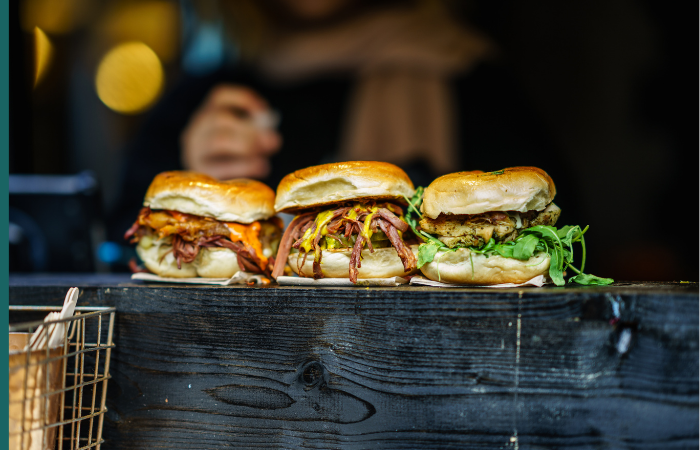5 dangerous mistakes food sellers could be making
Hundreds of companies across the UK are relying on the government's furlough scheme to stay afloat, Statista reported that 83% of business leaders within the restaurant industry had to furlough over 90% of their staff in 2020.
In addition to this the FSA (Food Standards Agency) showed 44% of new food businesses opened during the first lockdown, as of December 2020, the number of home food businesses opened was 13,257.
With so many people struggling financially during the pandemic, specifically within the hospitality industry, many have turned to side hustles to boost their income. In an attempt to get money fast, it could be tempting to set up a home food business without going through the correct channels and considering the crucial health and safety aspects of running a food service from your own kitchen.
Registry
To begin running your home-based food company, your first port of call is to register the business correctly, this includes registering yourself as self-employed via HMRC and registering as a business with your local authority. Business registry should be done at least 28 days before opening and is free, it can be done online in minutes. In keeping with 'food law' guidelines, any place where food is sold, supplied, prepared or given away for free on a regular basis is required to do this - even if it is a side business. The legality of this is hugely beneficial to you if a problem did occur. As many see cooking as a hobby and even baking for people as an act of kindness, this legal requirement can be set aside to complete at a different time, this is dangerous to customers and can also result in problems with tax.
Risk assessments
Carrying out a risk assessment is paramount and the law. With a risk assessment in place, you are protecting any staff you may employ in the future from hazards and harm. You must first identify what hazards could be within your workspace. This could range from cooking equipment to general household obstacles. All possible scenarios should be covered in a risk assessment - this way if an accident was to take place, your insurance would be valid. Equipment should be checked properly, cleaned correctly and staff (if any) should be trained accordingly even if the business is operating from your familiar residence.
Food Hygiene
Once your legal matters are completed - this is the next priority. Although you may think that your house is clean enough to prepare food for the general public - the set rules to follow can be ignored or forgotten. This is incredibly important, even more so with Covid-19 playing a huge part in our lives. Cross contamination is one of the most common errors, in fact, it is estimated that 600 million people worldwide experience food poisoning every year. This can be more difficult to avoid when working in a small environment, so extra measures should be taken. Food preparation, cooking and chilling should be taken into account to avoid the sickness of any customers. Equipment should be properly cleaned after every order, there are training courses for food hygiene specifically, to ensure you are following correct procedures.
Allergens
More and more people across the U.K have specific dietary requirements and this may be something that gets overlooked if your menu is limited, or you choose to make things that suit your own tastes. In addition to this, serious allergies are also a vital consideration. To avoid detrimental complaints or fatal mistakes you must disclose all of your ingredients no matter how small the menu or 'obvious' the food title. Cross-contamination is at the forefront of allergen training. Mistakes made in this area of the hospitality industry can be extremely dangerous if missed.
Food Crime
A less talked about topic of conversation in the SME food business world, Food Crime is something that could well be overlooked in the midst of opening for business. To avoid this very serious offence, only purchase produce from reputable, trustworthy food suppliers. With Covid-19 causing such chaos, new, unlawful businesses are appearing across the world and choosing the wrong company to work with could have you purchasing produce that has not been checked thoroughly by the Food Standards Agency. If you notice anything suspicious in regards to food origins, it could be time to report this to The National Food Crime Unit, as this could be as serious as illegal slaughtering and theft, ignoring this could land your small company in trouble too.
"Lots of home food companies have opened during the pandemic, with takeaways being so popular and many hospitality staff on furlough, people have taken the opportunity to turn hobbies into businesses. While this is a great way to boost income and have fun doing so, the crucial aspects of this can get put on the back burner in favour of less tedious jobs.
This is where problems can occur, it is so important to ensure health and safety, food hygiene and other legal priorities are taken proper care of in the first instance. Ignoring these responsibilities could result in huge costs or even closure, especially when the world is so health conscious. The last thing anyone wants is their ability to run a food business questioned or taken away because of mistakes that could have been avoided, if proper measures had been taken. So please, follow regulations and receive as much relevant training before you begin. Good Luck!” Mike Hardman, Marketing Manager at Alliance Online








